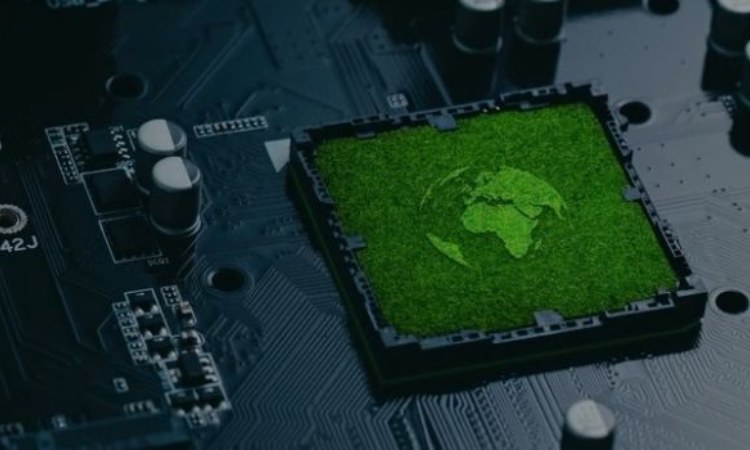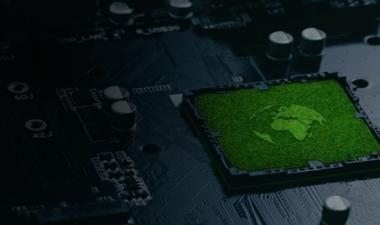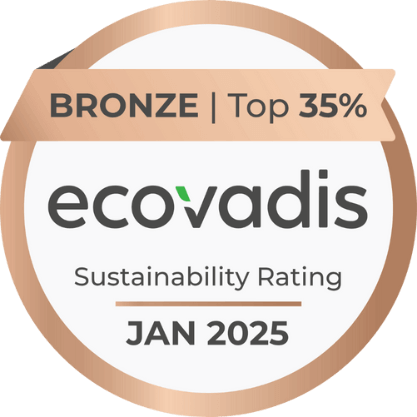Gearing Up for a Greener Future: Key Circular Solutions at the World Circular Economy Forum 2024
By Gibson Peters

The World Circular Economy Forum (WCEF) returns to Brussels, Belgium this month, bringing together leading thinkers and practitioners dedicated to a more sustainable future. This year's forum promises to be a pivotal point in the conversation around circularity, particularly within the realm of semiconductor manufacturing.
Platform Login Start My Free Trial
The ever-growing demand for technology and electronics presents a significant challenge. Semiconductor chips, the brains behind our modern devices, require complex and energy-intensive production processes that leave a hefty carbon footprint. However, the WCEF is poised to focus attention on ways to shape a more circular and sustainable future for semiconductors.
The forum is comprised of an ambitious four-day schedule of workshops, presentations, and sessions on everything from sustainable agriculture to circular finance. Some key areas to watch concerning manufacturing measurability and semiconductors include:
1. Standardizing Sustainability Measurement: Defining Our Progress
Measuring progress is crucial for achieving sustainability goals. However, the current landscape of sustainability metrics lacks a universal standard, making it difficult to compare and track progress across different companies and industries. The WCEF aims to tackle this issue and propose solutions for:
- Establishing Common Frameworks: One of the key discussions will center on developing standardized frameworks for measuring sustainability improvements. This could involve frameworks like Life Cycle Assessment (LCA) methodologies, which provide a comprehensive picture of a product's environmental impact over its entire lifecycle. We are watching this with keen interest as TechInsights is working to help develop a common Life Cycle Assessment tool that assists the semiconductor value chain in measuring the carbon impacts of chip manufacturing around the word.
- Transparency and Traceability: Standardizing data collection and reporting protocols enhances transparency. This allows stakeholders to compare environmental footprints across different chips and production processes.
- Focus on Carbon Footprint: Reducing carbon emissions is a central tenet of sustainability. The forum will address the need for standardized carbon footprint measurement protocols that capture both Scope 1, Scope 2, and Scope 3 emissions.
- Beyond CO2: While carbon dioxide receives significant attention, the WCEF will also look towards standardizing methods to measure other pollutants released during semiconductor fabrication. These include PFAS, hazardous air pollutants, water contaminants, and solid waste generation.
Standardized measurement is a critical first step. By establishing a common language for sustainability, companies can collaborate more effectively, track progress towards shared goals, and identify areas for improvement within the semiconductor supply chain.
2. Reducing Emissions in Semiconductor Manufacturing: A Circular Approach
Beyond measurement, the WCEF will focus on practical solutions for reducing carbon emissions and pollutants throughout the semiconductor lifecycle. We can expect discussions on:
- Energy Efficiency and Renewable Energy: Optimizing energy use during chip production can significantly reduce Scope 1 and Scope 2 emissions. The forum will explore initiatives promoting energy-efficient equipment, cleaner manufacturing processes, and the adoption of renewable energy sources like solar and wind power.
- Circular Materials Management: The WCEF will highlight circularity practices like wafer reuse and recycling. By extending the lifespan of valuable materials, the need for virgin resource extraction and associated emissions can be minimized.
- Sustainable Water Management: Semiconductor production is a water-intensive process. The forum will delve into solutions for water conservation, wastewater treatment, and the use of recycled water within fabs (fabrication plants).
Collaboration and Action are Key
The World Circular Economy Forum presents a unique opportunity for industry leaders, policymakers, researchers, and NGOs to come together and tackle the sustainability challenges faced by the semiconductor industry. Collaboration may be a key to success, but so is action. It will be exciting to see what comes out of this year’s forum, and not just around new ideas, but in how these ideas are translated into concrete actions taken by tech leaders to improve measuring the impact of their operations and take steps to make earth-saving improvements.













